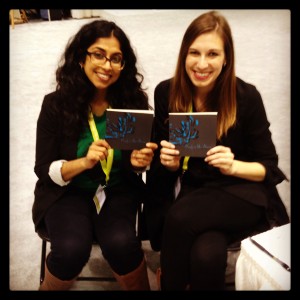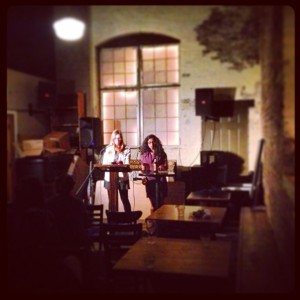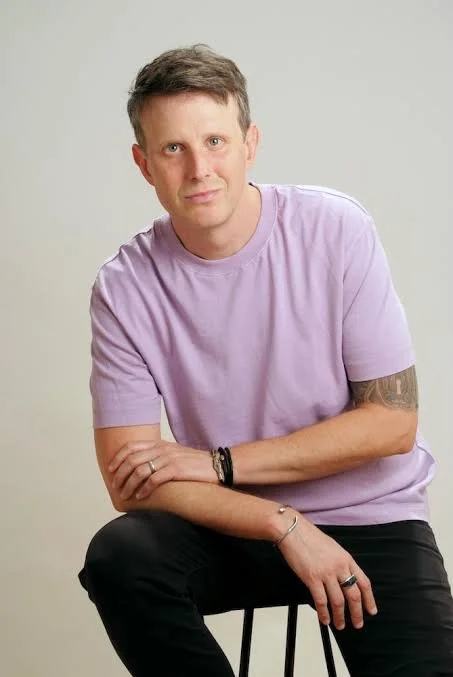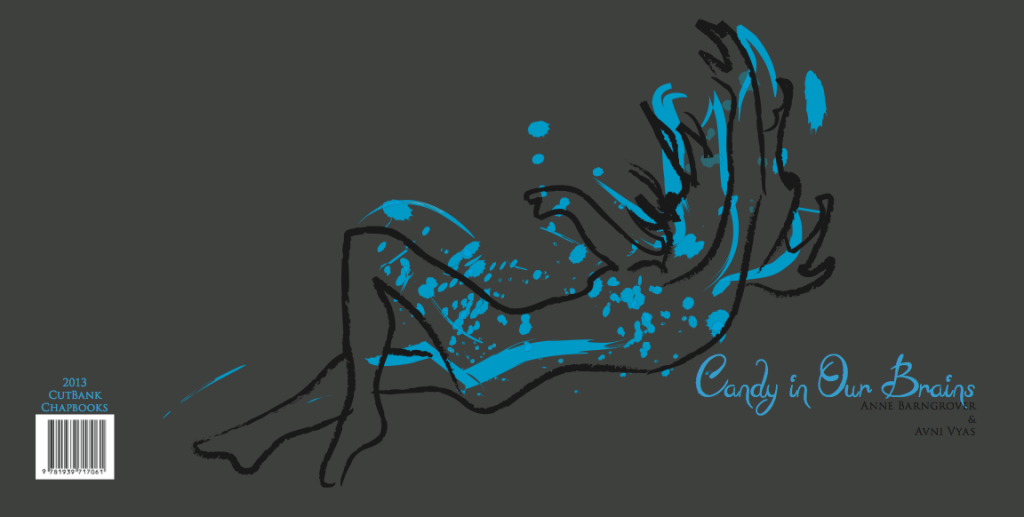 CutBank was so excited to publish a poetry chapbook featuring collaboration between two female authors (Candy in Our Brains by Anne Barngrover & Avni Vyas). Can you give me the background? How did you come to know each other and write together?
A group of us took a trip to a place called Sister Sinks on the edge of town. Technically, we were trespassing. Because we were trekking through North Florida brush on social trails, there were no restrooms, so Anne and I snuck off into the bushes to pee and keep lookout. From that moment forward, Anne and I shared an implicit bond of protecting each other from the elements, which I think translates into our writing.
CutBank was so excited to publish a poetry chapbook featuring collaboration between two female authors (Candy in Our Brains by Anne Barngrover & Avni Vyas). Can you give me the background? How did you come to know each other and write together?
A group of us took a trip to a place called Sister Sinks on the edge of town. Technically, we were trespassing. Because we were trekking through North Florida brush on social trails, there were no restrooms, so Anne and I snuck off into the bushes to pee and keep lookout. From that moment forward, Anne and I shared an implicit bond of protecting each other from the elements, which I think translates into our writing.
I also knew Avni was going to be my friend when our first conversation involved her describing how a worm fell off her cat as it walked across her keyboard and she yelled “NOOOOOO” in a deep man voice.
Also, just this moment I just asked Avni if she had a hair tie on her. She undid her ponytail and literally gave me the hair tie off her back. This is why we work.
We trust each other with every thought that would appear in our brains.
What was the literal process for creating the poems featured in Candy in Our Brains?
Initially, we toyed around with sonnets-- their space and necessity for lyrical density appealed to us, but the form itself seemed cumbersome. We decided on a fourteen line limit and decided to interlace our writing. That means if Anne started with the first line of a poem, the second line was mine, and we'd alternate throughout. Whoever wrote the first line also wrote the title. This is how our entire collection was written--alternating lines. In the best way, each of us is equally invested in each poem and relies on the other for support, momentum, and talking shit about what ails us.
What were the greatest pleasures in collaborating? Any obstacles?
2012 was a real shit-show of a year. We were talking just about every day, and between kvetching, laughing, and talking about our writing, it became evident that this ongoing friendship was crucial to our well-being and our individual creative process.
Anne and I realized also that we had strong protective streaks for one another. I feel so honored that Anne would leap over a table and rip out an enemy's jugular if need be.
Avni is basically this.
Part of the surprise in writing together was seeing where she would take the next line and giving up expectations for the poem at its onset. We wrote to make poems, but we wrote also to make each other laugh, or remember. It was imperative, before we envisioned readers, to write for each other.
Can you discuss the persona of the “Heroine”? What does she represent for you?
As people who freak out at the thought of crossing the street if the crosswalk doesn't approve, Heroine serves as a fearless part of our writing personae--she gets away with things we couldn't in our daily lives, and she serves as a reminder that we are artistically and instinctually ruthless creatures.
Heroine makes fart jokes, dresses scarecrows, offends roommates and ex-lovers, trims rat-tails, ShamWows, hems and haws, doesn’t say I love you, and aches with unrequited love. She is a livewire; her spit is made of gasoline. She is vulnerable yet resilient; she writes this book with soot.
 How did you decide upon the title?
How did you decide upon the title?
Avni wrote it, and Anne called it. As soon as we wrote that line in “Fossils”: “Sometimes we decide what is wrong with each other/ and sometimes we let the candy in our brains get eaten, eaten into holes/ big enough for fists,” I just felt like that was it--that’s what we were really trying to say. That poem is emotionally hefty for both of us, and it’s one of the final ones that we wrote. I just felt the full weight of our project and our voices crashing down on me with that line, and the title couldn’t be anything else.
What do you see as the role of pop culture and slang in contemporary poetry?
I was teaching Junot Diaz's "The Sun, The Moon, The Stars" in my literature class and we began discussing the narrator's use of slang and vernacular. In the same breath, though, when you examine the story syntactically, there is such keen awareness and sophistication of language as well as movement. When it comes to slang and pop culture, these are integral elements which help us connect and transcend. Heroine, while basking in the glow of thrift store lamps, is reaching for something bigger than herself, and she, like MacGyver, is dauntless and resourceful in roping herself to the universal. She (and, and I guess, we) is (are) smart about her funny.
How do you view collaboration functioning in a literary culture accustomed to works by a single author? Why is collaboration important?
I first thought that working on a collaborative project would make me view the act of poem-making in a completely different way. I mean, if you think about it, it’s two heads, four eyes, four ears, two hearts, and two rogue spaghetti piles of emotions colliding together instead of the typical lonesome endeavour. But then, once I’ve had time to really think about it, the voices of people who inspire and challenge me are always in my brain, populating the imaginative space and helping me write my poems.
I realized, too, that since our minds are peopled with our friends, loved ones, enemies, and mentors, vocalizing the process makes this ether of negative capability tangible.
Any tips you might offer to authors working together?
Talk to each other in the process. Work with someone you trust. Believe in your poems.






























































